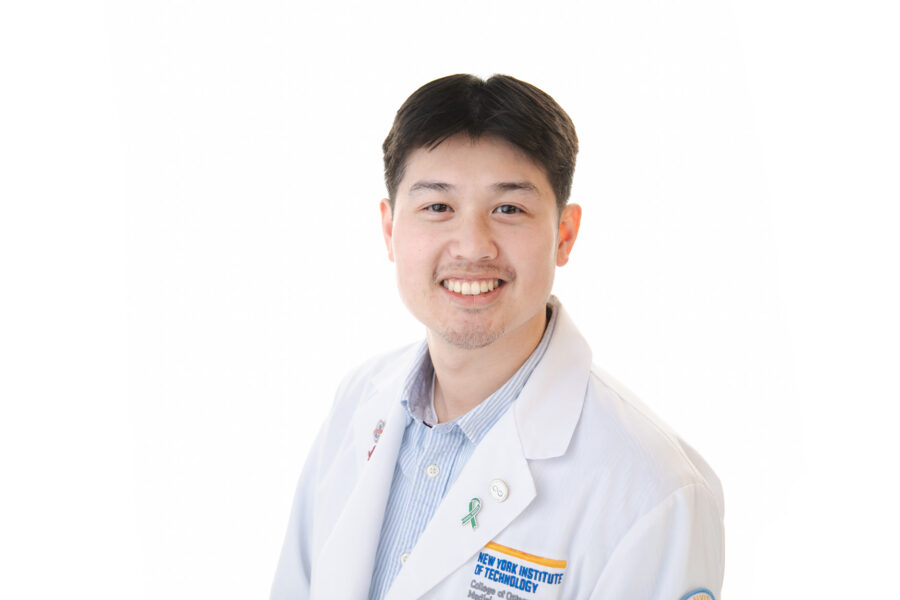
Medical Student Recognized for Cardiovascular Research
NYITCOM student Jac Lun Lin will investigate how reduced levels of testosterone put men at a higher risk for developing vascular metabolic complications.

This Summer, Don’t Let Dehydration Ruin Your Workout
Sports medicine physician Hallie Zwibel, D.O., shares tips to stay hydrated during summer exercise.
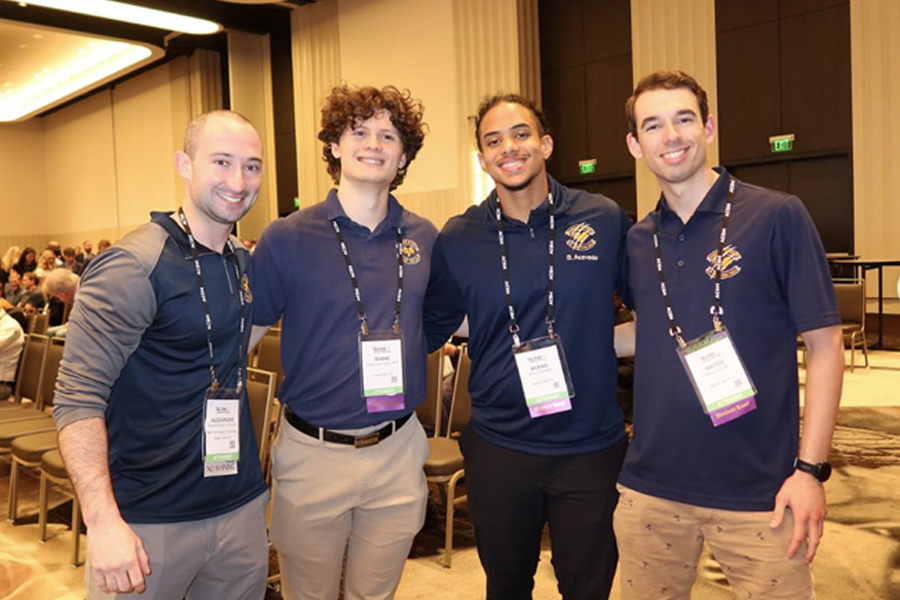
Dedicated to the Pursuit of Knowledge
Students and alumni from the College of Arts and Sciences, School of Health Professions, and College of Osteopathic Medicine shared research findings at impressive industry conferences.
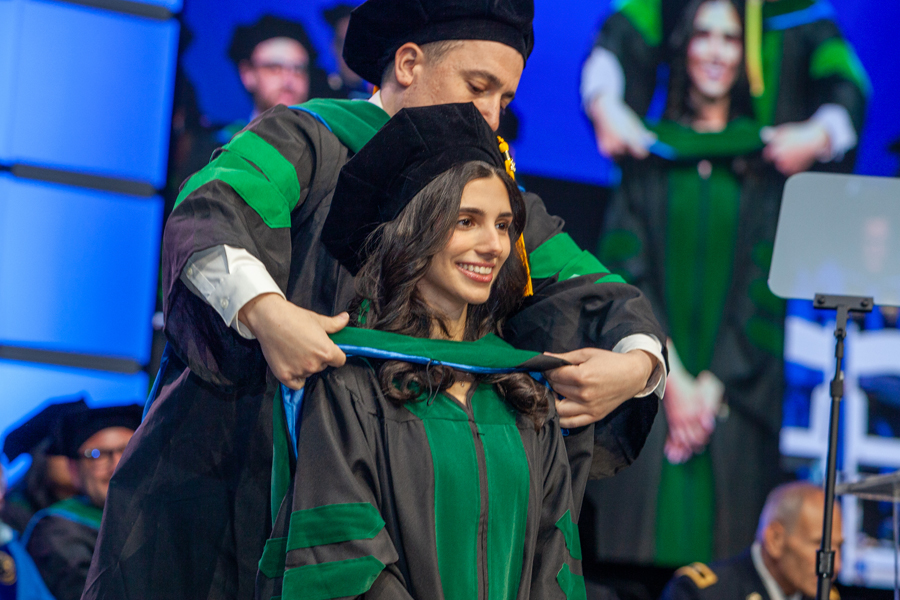
Hooding NYITCOM’s Class of 2025
At ceremonies in Old Westbury, N.Y., and Jonesboro, Ark., the College of Osteopathic Medicine (NYITCOM) ushered in more than 400 new physicians.
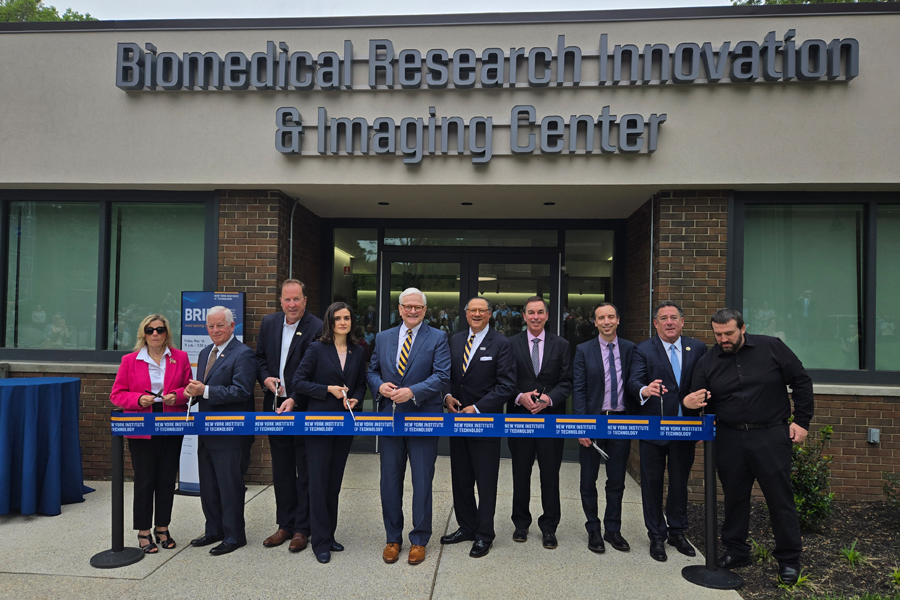
New Facility Fosters Interdisciplinary Biomedical Research
On May 16, New York Tech celebrated the official opening of the Biomedical Research, Innovation, and Imaging Center.
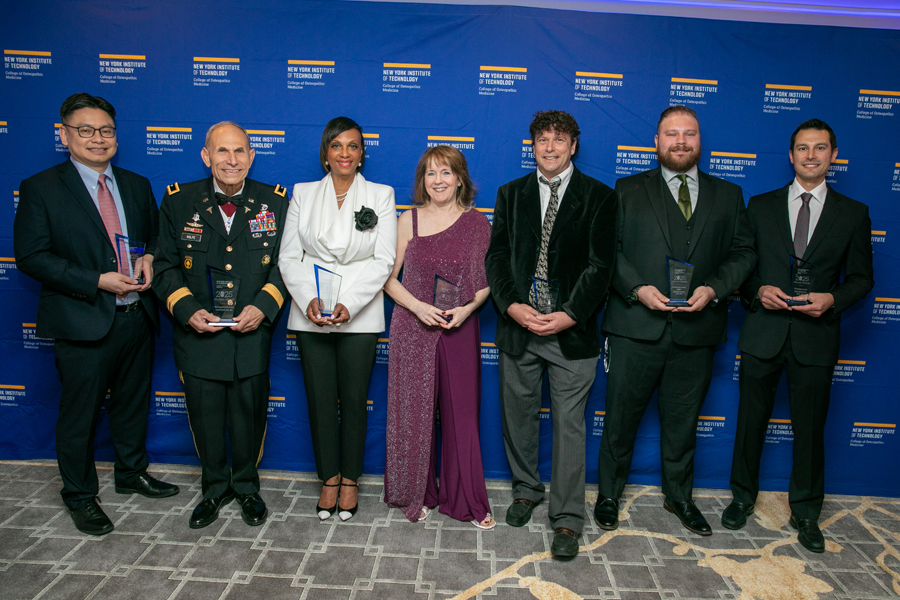
Recognizing Distinguished NYITCOM Alumni
Seven medical school alumni were celebrated at the College of Osteopathic Medicine’s (NYITCOM) 2025 Alumni Awards Dinner.
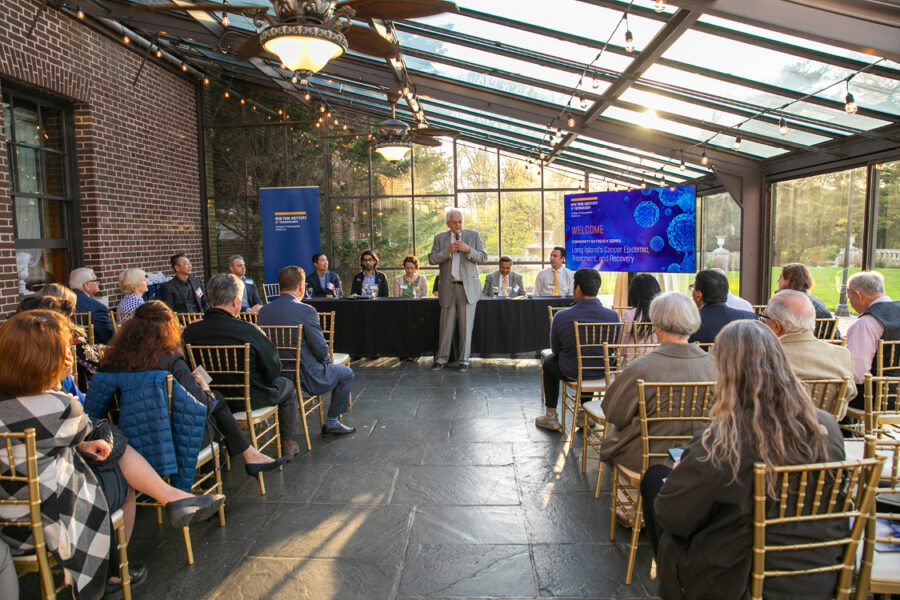
Examining the Cancer Epidemic
At Long Island’s Cancer Epidemic, Treatment, and Recovery forum, experts from New York Tech and top oncology providers shared promising cancer-fighting innovations with the local community.
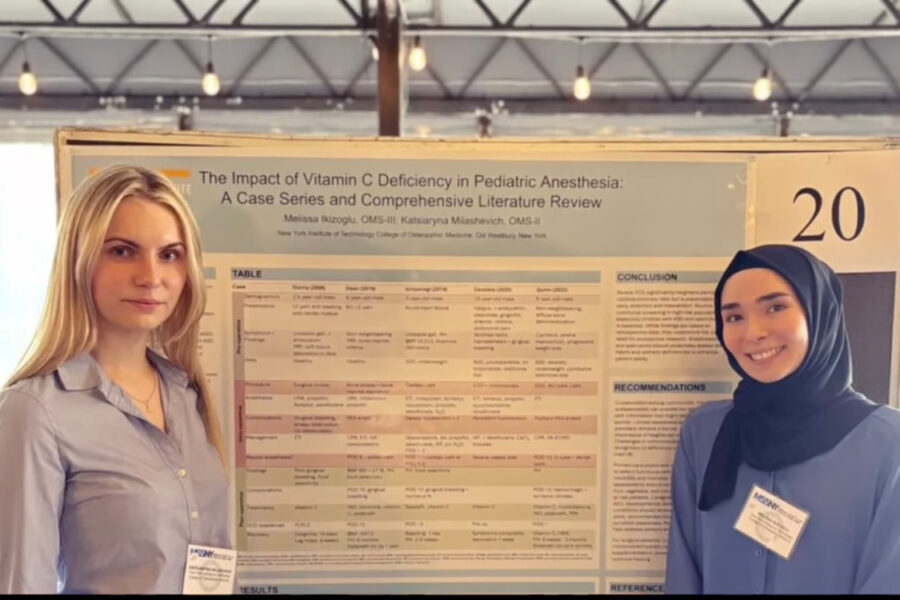
Student Researchers Shine at Medical Symposium
Future physicians earned top recognition at a poster competition held by the Medical Society of the State of New York.
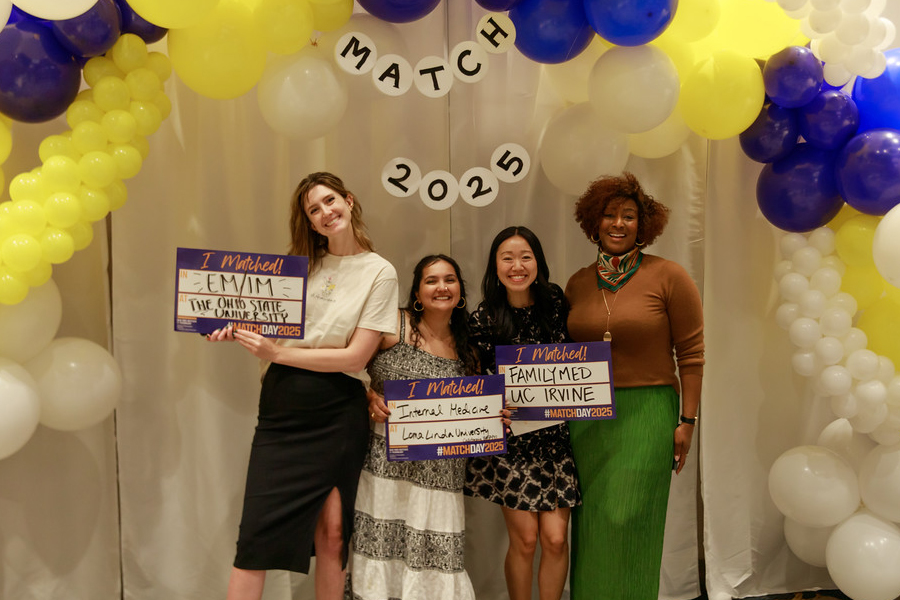
“Match” Madness
On March 21, members of NYITCOM’s Class of 2025 discovered where they will complete their residency training.

Tariffs Explained
Business analytics expert Shaya Sheikh, Ph.D., associate professor in the School of Management, explains how newly imposed tariffs could impact consumers, businesses, and supply chains.